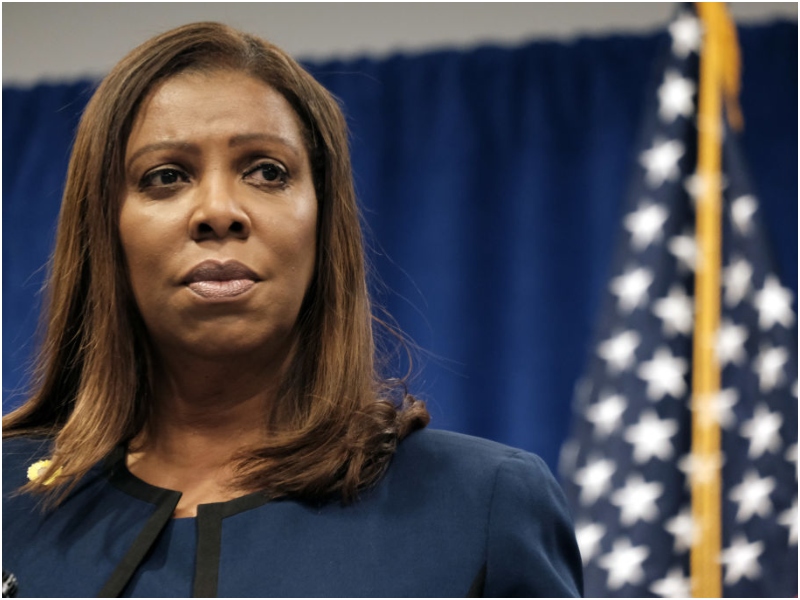New York Attorney General Letitia James, joined by 20 other Democratic attorneys general, has filed a motion for a preliminary injunction to block former President Donald Trump’s executive order aimed at dismantling the U.S. Department of Education.
The motion, filed on Monday, March 23, 2025, in Massachusetts federal court, argues that the executive order is unconstitutional and violates federal law.
The legal filing is part of a broader lawsuit initiated on March 13, which contends that Trump’s directive to close the department and shift its core functions to other agencies exceeds presidential authority and violates the Administrative Procedure Act (APA).
Trump’s Executive Order and Legal Implications
Trump’s executive order, signed on Thursday, directs the Secretary of Education to take “all necessary steps” to shut down the Department of Education, reducing the federal agency’s workforce by nearly half. Under this plan, federal student loans would be administered by the Small Business Administration (SBA), while special education and school nutrition programs would be transferred to the Department of Health and Human Services (HHS).
James and her fellow attorneys general argue that such a reallocation of congressionally mandated educational responsibilities is unlawful, stating in the motion:
“The Executive Branch cannot abolish the Department or any of its statutorily mandated components by eliminating the staff required to meet Congress’ requirements. Similarly, the President has no power to unilaterally and immediately transfer functions Congress assigned to the Department by statute.”
The lawsuit further asserts that the mass layoffs within the department violate the Administrative Procedure Act (APA), which protects against arbitrary and capricious executive actions.
Letitia James: “This Is an Attack on Our Schools”
James, who has led multiple high-profile legal actions against Trump, including the 2022 civil fraud lawsuit that resulted in a $500 million judgment against the former president, issued a statement reinforcing her position:
“The Trump administration’s illegal cuts to the Department of Education are an attack on our educators, our schools, and our students. We sued to stop Trump from dismantling the Department of Education, and today we are seeking a court order to protect students and their families. As a proud product of New York public schools, I will continue to defend our schools and all those who depend on them.”
Trump Defends His Plan, States Will “Do a Phenomenal Job”
Trump, in response to the legal challenge, defended his executive action, asserting that education decisions should be left to state governments. He stated:
“Beyond these core necessities, my administration will take all lawful steps to shut down the department. We’re going to shut it down and shut it down as quickly as possible. It’s doing us no good. We want to return our students to the states, where just some of the governors here are so happy about this. They want education to come back to them, to come back to the states, and they’re going to do a phenomenal job.”
Potential Legal and Policy Ramifications
Legal experts suggest that the lawsuit could set a precedent for executive authority over federal agencies, as Congress, not the executive branch, has the power to create or dismantle federal departments. Additionally, shifting responsibilities to agencies not originally designed to oversee education programs raises concerns about statutory compliance and long-term policy impacts.
Education Secretary Linda McMahon acknowledged the legal challenges ahead but defended the administration’s approach, stating:
“Closing the Department does not mean cutting off funds from those who depend on them—we will continue to support K-12 students, students with special needs, college student borrowers, and others who rely on essential programs. We’re going to follow the law and eliminate the bureaucracy responsibly by working through Congress to ensure a lawful and orderly transition.”
With the preliminary injunction motion now before the court, the case is expected to be a significant legal battle, determining the extent of executive power over federal agencies and the future of the Department of Education under a possible second Trump administration.

